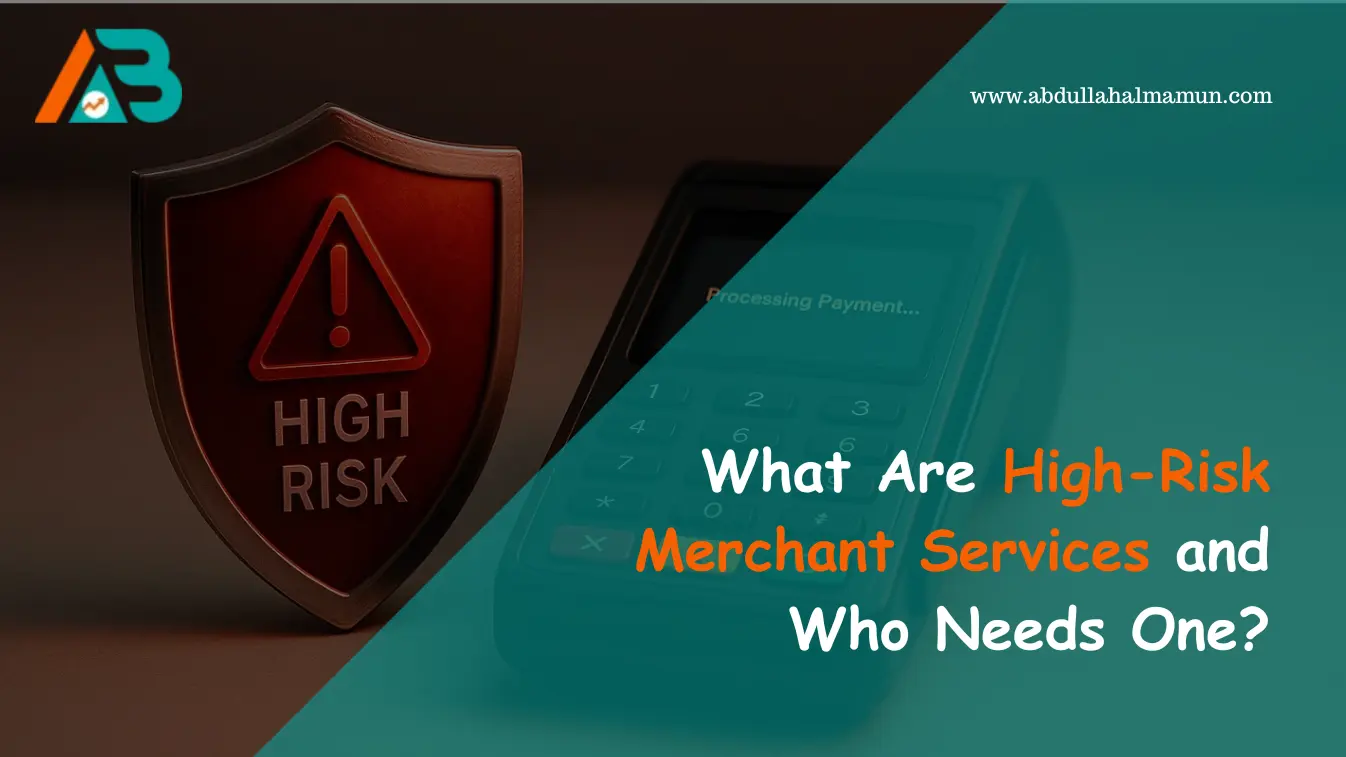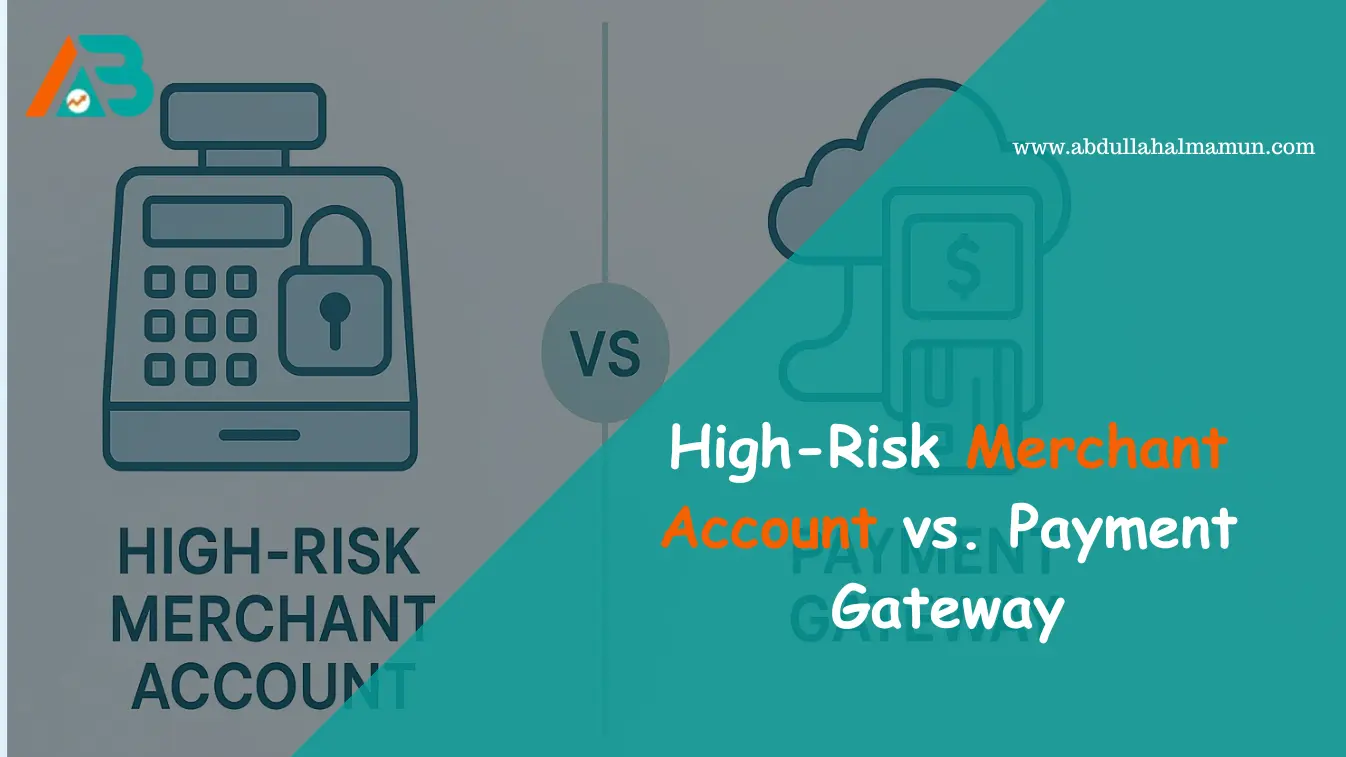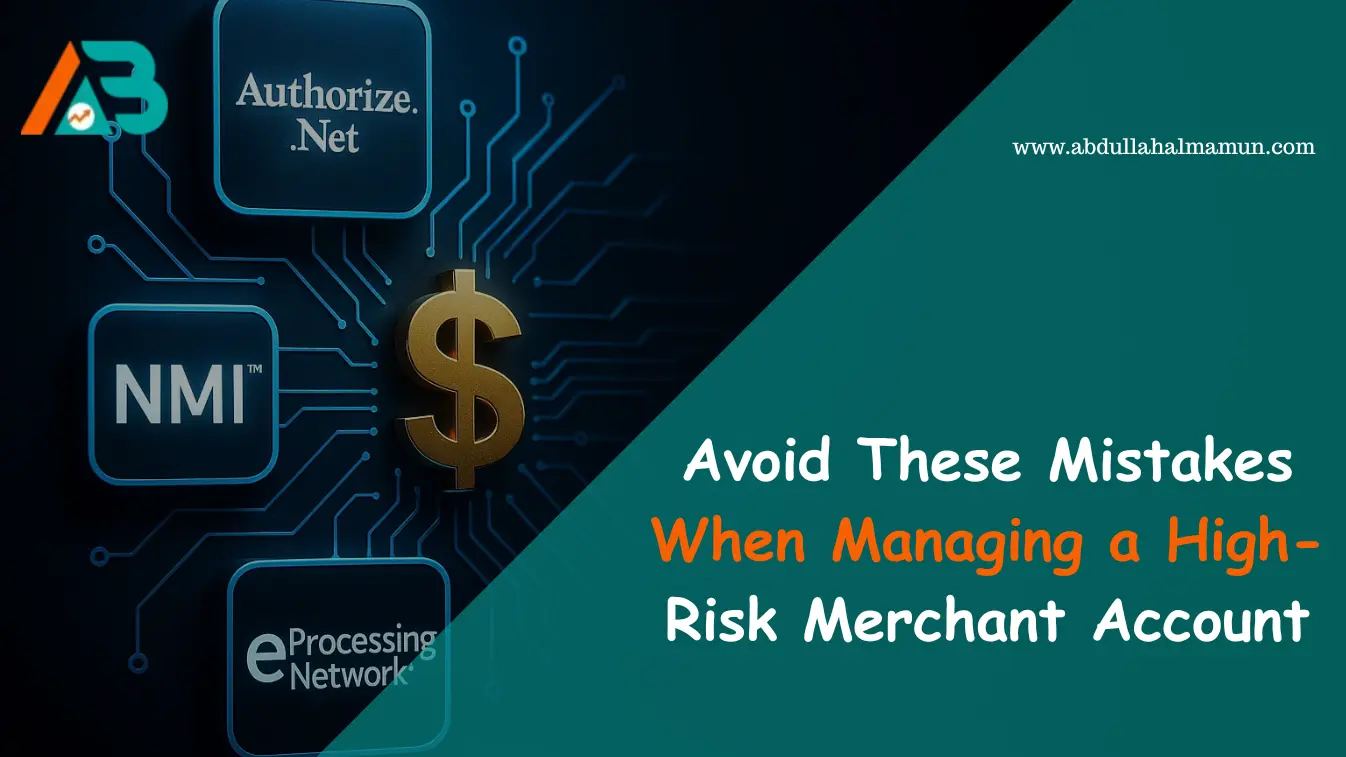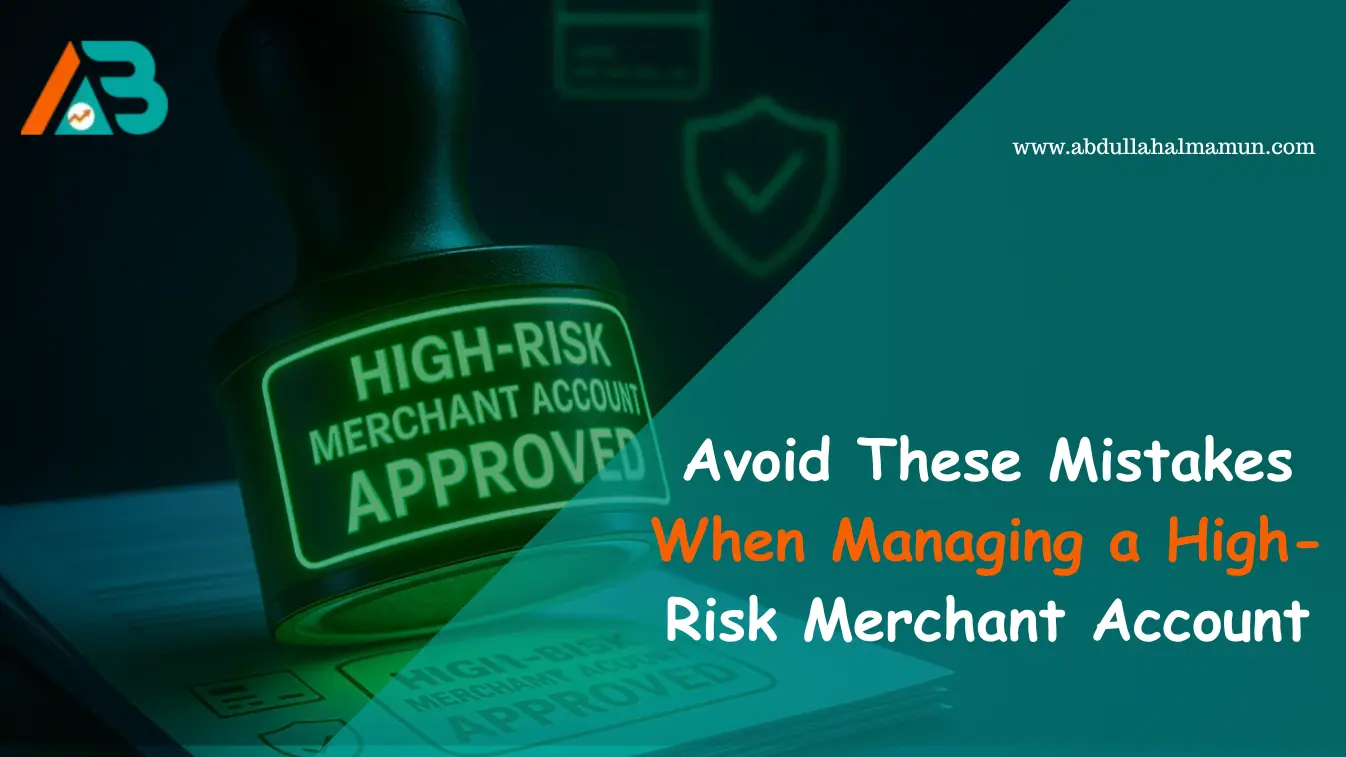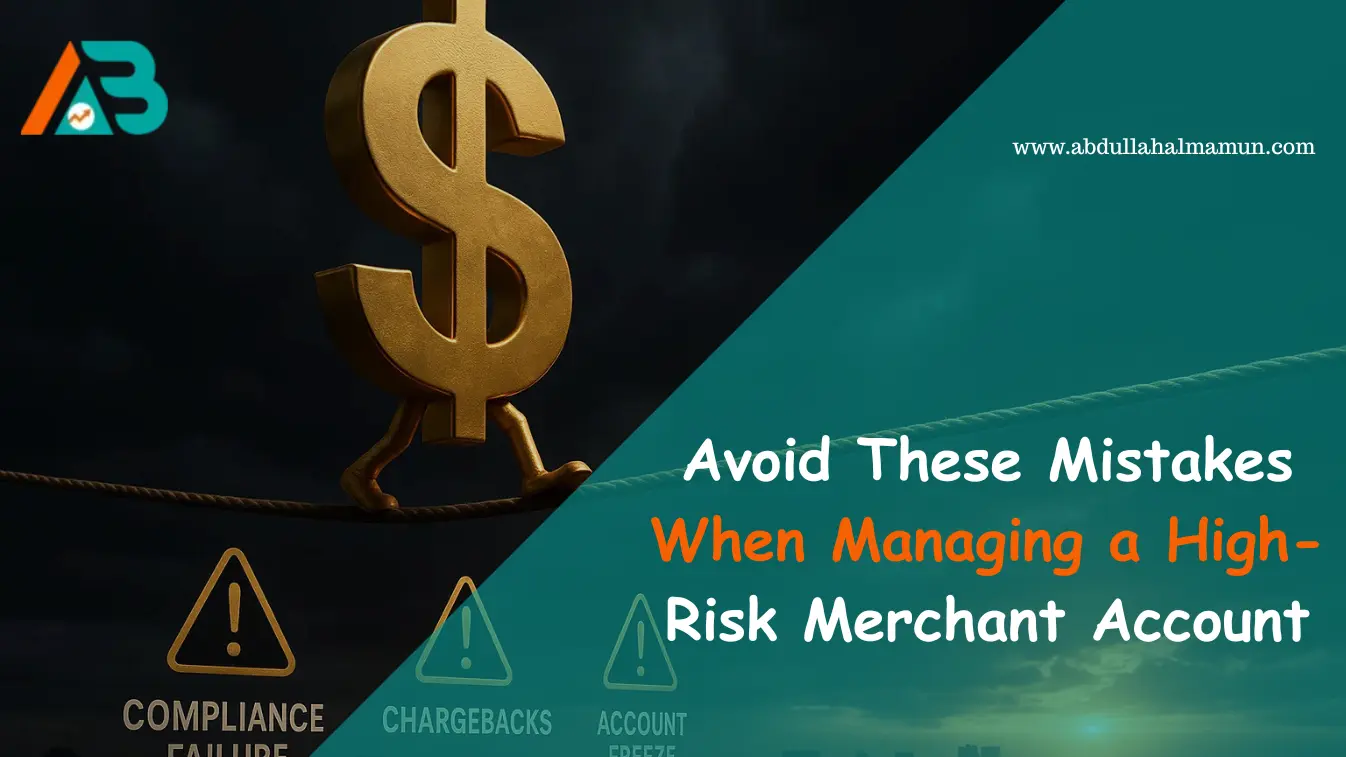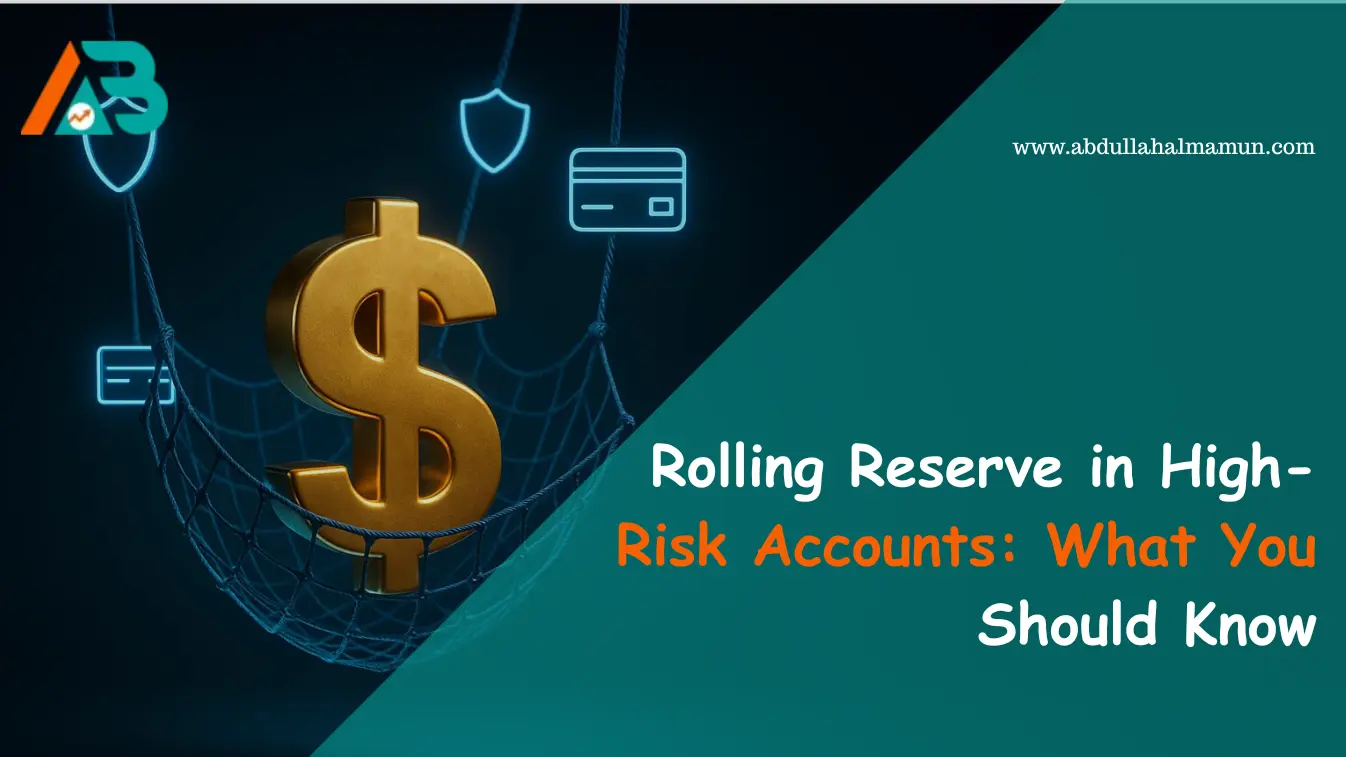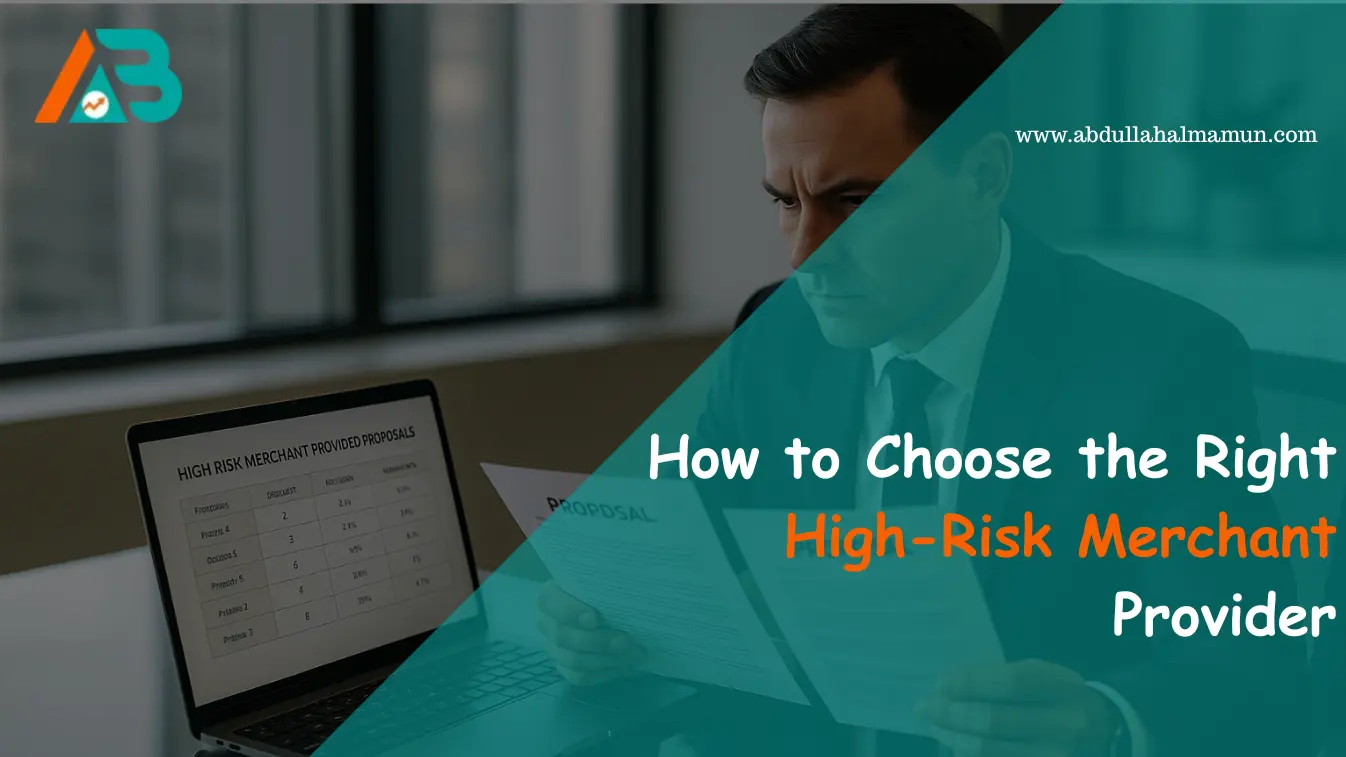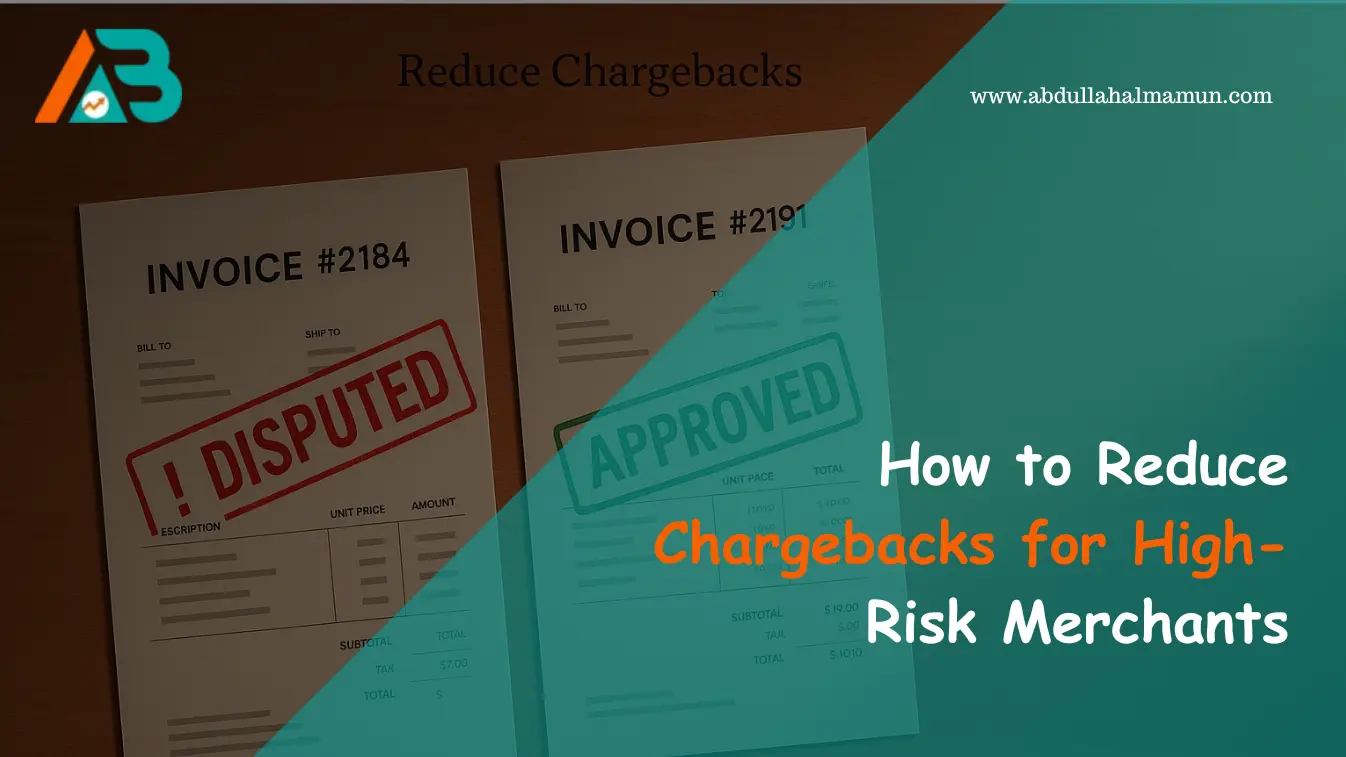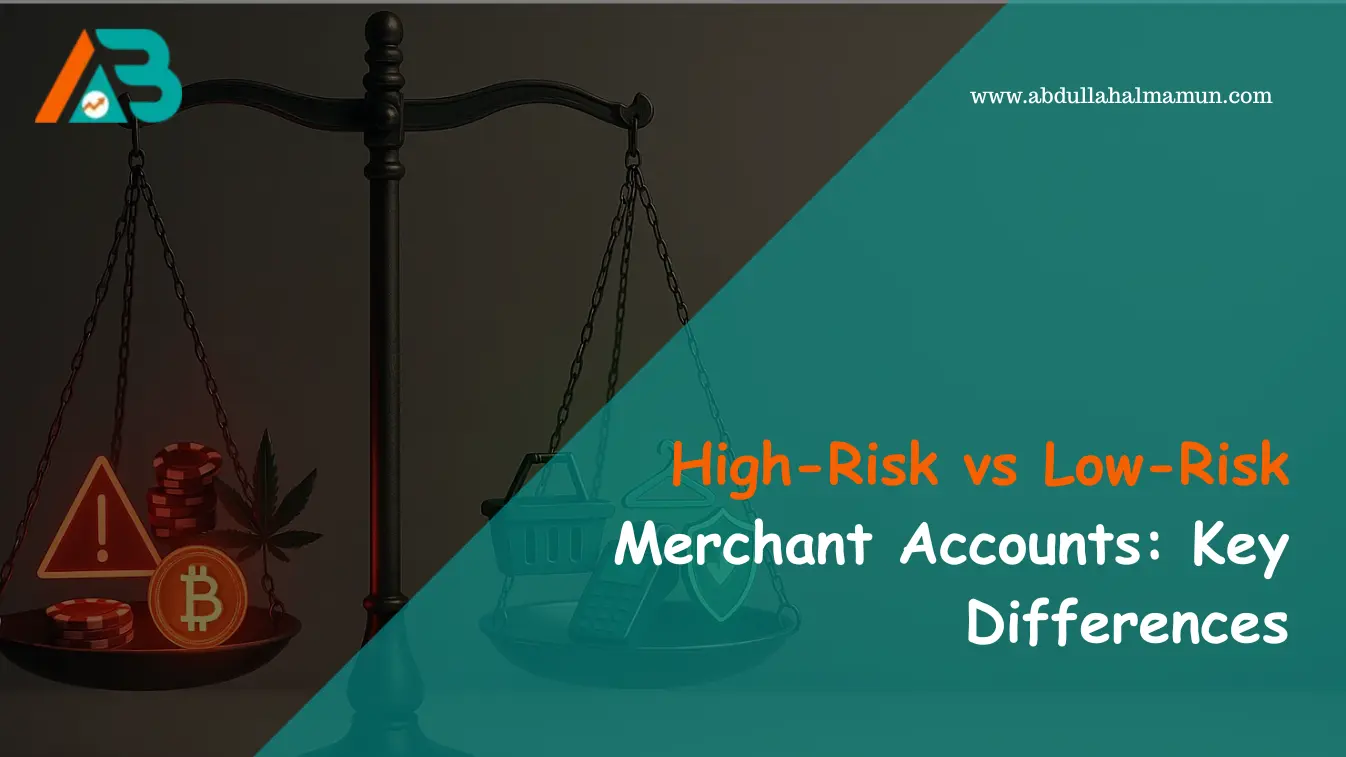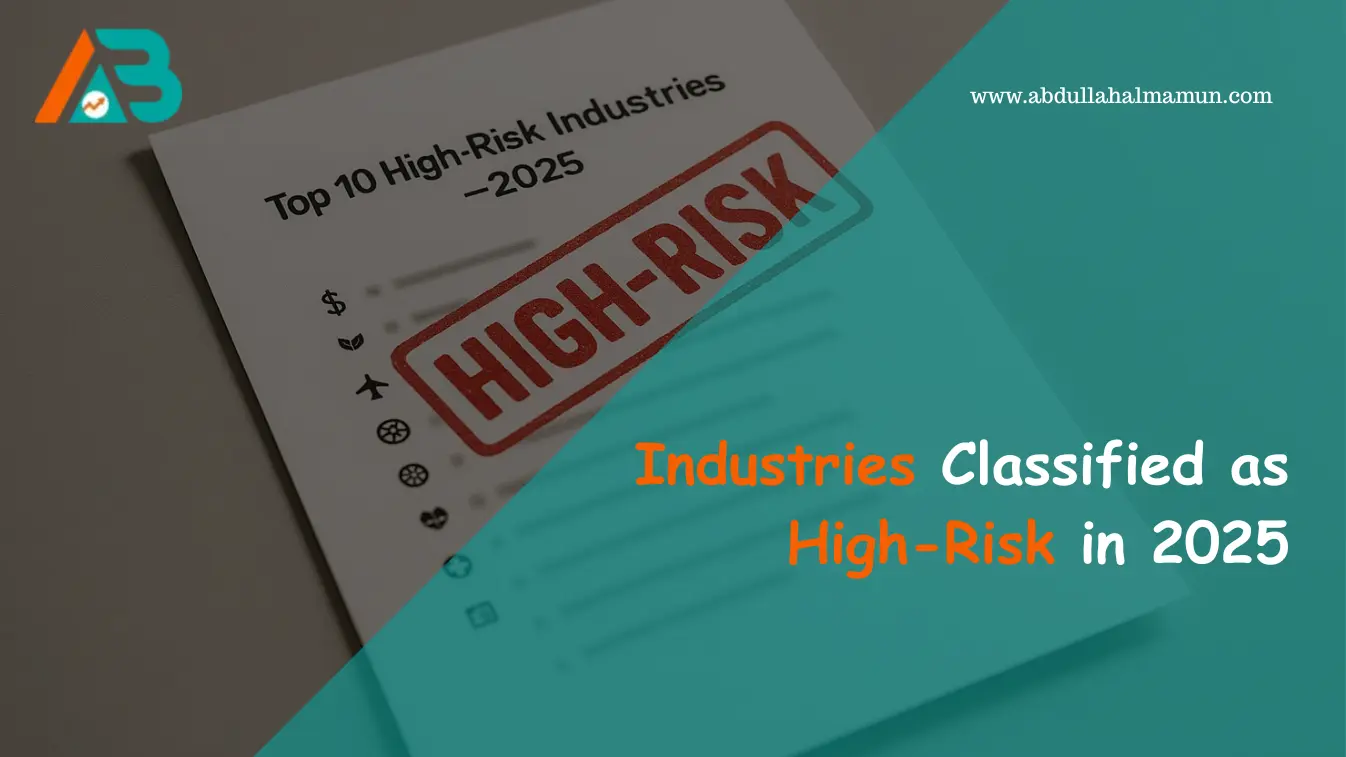“Look, when payments stop, your business doesn’t just pause, it kinda starts bleeding out. No joke.”
What are high risk merchant services actually ? That quote? I heard it from a founder I once worked with. It feels like eons ago. He launched an online coaching platform, things were picking up real fast… and then suddenly, his Stripe account froze. No notice. No negotiation. Just silence and blocked money.
Now, if that Stripe freezing thing hits a nerve, let’s have a talk.
Because, whether you’re running a global ecommerce brand, coaching clients from three continents, or just got your first US bank account closed check issued, you might be what the system calls a high-risk business.
But don’t worry, this blog is absolutely not going to make you feel guilty for growing fast or dreaming big. I’m just here to break down what high-risk merchant services actually are, and why some of us need them more than others.
“So, Why Did My Payment Gateway Ghost Me?”
Let me guess, you launched your online store, or maybe started offering your digital services internationally. You set up a Stripe or PayPal account. Everything looked so great…
And then, bam!!!
They shut you down. No real explanation. Just some vague email about “unusual activity” or “compliance issues.” You didn’t even get to blink before your payments were frozen, and your customers started panicking.
Sometimes, it’s not just about the payment provider. If your business formation wasn’t done right, or if your documents raise even a small red flag, it can quietly trigger issues like these. That’s why getting proper U.S. company formation with full compliance and an authorized signer in place matters more than people realize.
If that’s you, let’s talk. Because there’s a good chance you’re operating a high-risk business. And no, that doesn’t mean you’re doing anything shady. That doesn’t always mean shady.
It just means you’re not “low-risk” enough for traditional banks and payment processors to feel comfortable.
Sounds unfair? Yeah. It kinda is.
But there’s a real solution for it: High-risk merchant services.
Let’s clear the fog, before it pulls us under. Shall we?
What Are High-Risk Merchant Services ?
In plain English?
The high risk merchant services are payment processing solutions for businesses that banks see as “risky,” not because you’re a scammer, but because of your industry, client base, or business model.
You might be:
- Selling products or services globally
- Running a subscription-based platform
- Offering digital goods or coaching
- Processing large transaction volumes
- Facing frequent refunds or chargebacks
Any of those ring a bell? Then you’re already in what banks call the high-risk zone.
And while that label may sound like trouble, it’s not. It just means you need the right kind of payment system, one that expects your kind of business, and doesn’t panic when you’re, you know, successful.
So, Who Decides What’s “High Risk”?
Banks do. And payment processors. And credit card networks.
It’s all about risk tolerance; how much uncertainty they’re willing to take. If your business model makes them nervous (because of refunds, disputes, legal regulations, or international customers), they’ll immediately flag your account.
That’s why so many founders end up locked out of their own money. Simply because their business wasn’t built for a basic merchant account.
Who Actually Needs a High-Risk Merchant Account?
Now here’s the part you were probably waiting for: do you really need one of these accounts, or not?
Let’s keep it simple.
If you fall into any of these categories, chances are, yes:
- You’ve had a merchant account shut down in the past
- Your business has recurring billing (subscriptions, memberships)
- You operate internationally or accept cross-border payments
- Your chargeback rate is higher than average
- You sell non-traditional products or services (think coaching, crypto, or even supplements)
- You’re in a legally sensitive industry (CBD, adult, travel, etc.)
Basically, if you’ve been told “No” or “This violates our policy” more than once when setting up payments, you’re probably who these accounts were built for.
So don’t stress the label. Use it to your advantage. Because high-risk merchants just need high-performance systems behind them.
High-Risk Businesses
Here’s a non-exhaustive list of who might need a high-risk merchant account:
- Online education/coaching
- CBD or supplements
- Travel, ticketing, or events
- Digital downloads or SaaS
- Crypto, trading, or forex
- Dating sites or adult services
- Freelancers working globally
- Subscription-based anything
Basically: if your business moves fast, spans borders, or gets talked about by regulators, it probably lands in this group.
“Why Can’t I Just Open a Regular Payment Account?”
You can. And it may even work… for a while.
But then comes that dreaded moment, your US bank account gets closed, or your merchant account flags a refund, or someone disputes a charge, and suddenly…
You’re out of the game.
Even worse? They send you a check, and now you’re stuck wondering why non-residents can’t cash US checks and how you’re supposed to access your own funds from another country.
What Makes High-Risk Merchant Services Different?
They’re built for situations like yours.
They know chargebacks happen.
They understand your industry.
They don’t freak out over cross-border sales.
And yeah, they might come with slightly higher fees or longer payout times. But they also come with peace of mind. Which, let’s be honest, is priceless when your business is riding momentum.
Real Talk: Are You Actually High Risk?
Here’s a quick gut-check:
- Have you had a Stripe or PayPal account shut down without warning?
- Are you selling something that might seem “borderline” to banks?
- Have you been flagged for “excessive chargebacks” or “compliance concerns”?
- Did you ever receive a US bank account closed check issued, and now you’re stuck?
If you answered yes to even one of those… welcome to the high-risk club. You’re not alone. And you’re not doomed.
Final Thoughts: Being “High-Risk” Isn’t the End. It’s Just a Different Road.
You know what? Being labeled high risk is just the system’s way of saying:
“You’re moving faster than we can keep up with.”
Don’t let that stop you.
Because, like I always say:
“The riskiest thing in business is playing it safe in the wrong system.”
So, build bold. Scale big. Just make sure you’re using tools that can actually keep up.
And if you ever feel stuck—processing delays, closed accounts, checks you can’t touch—our U.S.-based team helps businesses like yours navigate all of it legally, smoothly, and securely.
You don’t have to figure this out alone.
FAQ
- Why Is My Business Considered “High Risk”? I’m Just Selling Online!
You’re not alone. Many online businesses—especially ones that sell globally, use subscriptions, or handle digital goods—get flagged automatically. It’s not that you’ve done anything wrong. Banks just don’t like anything they can’t predict or control easily.
- Can’t I Just Use a Regular Merchant Account Instead?
You can try… but there’s a big risk. If the provider later realizes you’re in a high-risk category, they could freeze or terminate your account. Without notice. That means no payments, no refunds, and a very angry customer base. Best to set it up right from the start.
- What’s the Real Difference Between Regular and High-Risk Merchant Services?
Think of regular services as off-the-rack, and high-risk as tailor-made. High-risk merchant services are built to handle unpredictable transactions, higher chargebacks, and tricky industries. The fees might be a bit higher, but they give you the breathing room to actually run your business.
- Are High-Risk Merchant Services Legal and Safe?
Absolutely. They’re just more specialized. These services follow the same payment regulations as traditional accounts—they’re just more flexible, with policies that fit unique industries. If you work with the right provider, everything is fully compliant and transparent.
- I’m a Freelancer or Consultant. Do I Need This?
Maybe. If you work with international clients, use platforms that have flagged you before, or operate in a niche industry (like crypto, finance, or adult), a high-risk merchant account might save you future headaches. Otherwise, a regular account may be fine, for now.
- Why Can’t I Use Stripe or PayPal Like Everyone Else?
Well, here’s the catch: Stripe and PayPal are great until they’re not. They’re known for freezing accounts without warning, especially for high-risk industries or unusual payment patterns. If you’ve ever had a US bank account closed and a check issued, you already know how that movie ends.
- What if My Account Has Already Been Shut Down, and I Received a Paper Check?
That happens more often than people realize. And it’s exactly why many entrepreneurs look into high-risk merchant services in the first place. You’ll likely need to cash US bank checks remotely, and yes, there are secure and legal ways to do that.

